|
Scripture Readings: Jeremiah 33:14–16 | Psalm 25:1–10 | 1 Thessalonians 3:9–13 | Luke 21:25–36
“Now when these things begin to take place, stand up and raise your heads, because your redemption is drawing near.” (Luke 21:28). Today we celebrate the first Sunday of Advent: a season of anticipation and preparation… getting ready for the coming of Jesus, first of all at His birth, but even more so His coming again at the end of time to bring God’s good kingdom to completion at last. It is a season meant to get us excited, but also to get us going… to inspire us to act, and remember what it means to share in Christ’s Kingdom today. The Lutheran pastor and theologian, Dietrich Bonhoeffer puts it well: “The Advent season is a season of waiting, but our whole life is an Advent season, that is, a season of waiting for the last Advent, for the time when there will be a new heaven and a new earth.”[1] Our Scripture readings today also invite us to reflect on what it means to await God’s Kingdom, and to do so in hope. This morning our first reading comes from the prophet Jeremiah, who shared a message of hope for God’s people at a time when things looked pretty bleak. Within Jeremiah’s lifetime, the kingdom of Judah would fall to Babylon. The city of Jerusalem, and the Temple of Yahweh would be destroyed, and its people would be killed or carried off into exile. But even so, the Living God gave these words to His people: “The days are surely coming, says the Lord, when I will fulfill the promise I made to the house of Israel and the house of Judah. In those days and at that time I will cause a righteous Branch to spring up for David; and he shall execute justice and righteousness in the land. In those days Judah will be saved and Jerusalem will live in safety.” The LORD would be true to His word. Though they suffer, God would not abandon His people. Though it was not in our reading today, Jeremiah’s prophecy goes on: “For thus says the Lord: David shall never lack a man to sit on the throne of the house of Israel, and the levitical priests shall never lack a man in my presence to offer burnt offerings, to make grain offerings, and to make sacrifices for all time. …Thus says the Lord: If any of you could break my covenant with the day and my covenant with the night, so that day and night would not come at their appointed time, only then could my covenant with my servant David be broken, so that he would not have a son to reign on his throne, and my covenant with my ministers the Levites. Just as the host of heaven cannot be numbered and the sands of the sea cannot be measured, so I will increase the offspring of my servant David, and the Levites who minister to me… Thus says the Lord: Only if I had not established my covenant with day and night and the ordinances of heaven and earth, would I reject the offspring of Jacob and of my servant David and not choose any of his descendants as rulers over the offspring of Abraham, Isaac, and Jacob. For I will restore their fortunes, and will have mercy upon them.” That was Jeremiah 33:17-18, 20-22, 25-26. At a time when the kingdom of David’s descendants, and the priesthood of Israel were all in serious jeopardy, God was re-affirming His covenant promises, assuring His frightened people that even though they were headed for exile… that would not be the end of their story. They would return, and God’s kingdom and priesthood would never come to an end. Several centuries later, during the time of our Gospel reading this morning, the people of Judah were back in the land, but things were not yet as they should be: they had a royal family, but not from David’s line. Herod the “Great” and his sons had served as Israel’s rulers for some time, but only under the rule of the Roman Emperors who used them to “keep the peace.” A few weeks back we heard how Herod had rebuilt Solomon’s Temple, but by this time the priesthood had become compromised in the eyes of many… enmeshed in all the political power-games of the day. Though it was better than sitting in exile, God’s people were still waiting for the LORD to fulfill His promises… to bring in His ultimate, and unending Kingdom at last. But Jesus’ words in our Gospel reading don’t seem to offer a hopeful picture. Instead, He’s warning His followers about the hard times to come. The words we heard today mark the conclusion of a much longer passage in which Jesus predicts the downfall of Jerusalem… it’s leaders, it’s Temple… and many of those who live there. Right before our reading today, Jesus says this to His disciples in Luke 21:2-24, “When you see Jerusalem surrounded by armies, then know that its desolation has come near. Then those in Judea must flee to the mountains, and those inside the city must leave it, and those out in the country must not enter it; for these are days of vengeance, as a fulfillment of all that is written. Woe to those who are pregnant and to those who are nursing infants in those days! For there will be great distress on the earth and wrath against this people; they will fall by the edge of the sword and be taken away as captives among all nations; and Jerusalem will be trampled on by the Gentiles, until the times of the Gentiles are fulfilled.” Jesus goes on, as we heard, to speak of “signs in the sun, the moon, and the stars, and on the earth distress among nations… People will faint from fear and foreboding of what is coming upon the world, for the powers of the heavens will be shaken.” (Luke 21:25-26). In other words, chaos. A world where everything that seemed steadfast and sure would suddenly come undone. Where even heaven and earth, it seems can no longer be counted on. Doesn’t exactly seem like a hopeful message… but it’s one we might be able to appreciate a bit more these days, especially after COVID. So much of what we had trusted in has proven to be unsteady, leaving us longing… waiting for this season of fear and uncertainty to end. But here is where Christ tells His disciples, including you and I today, to hold onto hope… to “stand up and raise [our] heads, because [our] redemption is drawing near.” For the Son of Man, the LORD’s Messiah, is coming in power and glory to bring about the Kingdom of God. Jesus calls us to trust, to place our hope, not in our own leaders, or piety, or power… but in Him, whose words are more faithful and enduring than Heaven and Earth. He is the one we’re hoping for. He is the one we’re waiting for. The Son of God and Son of Man who will come again one day to bring God’s glorious redemption… the one who will fulfill the promises God made to His people. Jesus is the King of Kings… the Righteous Branch of David’s family, who as the Risen Lord will never leave His throne empty again. Jesus is the Eternal High Priest, who offered up His own life at the cross as the ultimate sacrifice to save the world. In Jesus, God’s promised salvation has come, but not just for Judah and Israel, but for all nations… all people everywhere. And as we hope and wait for Him to renew Heaven and Earth, Jesus puts His own Spirit within us so we can share in His rule and ministry. In Him, we are drawn together into what St. Peter called: “a royal priesthood, a holy nation, God’s own people, in order that [we] may proclaim the mighty acts of him who called [us] out of darkness into his marvelous light.” (1 Peter 2:9). As the Church, the body of Jesus, filled and empowered by His Holy Spirit, we are graciously being made a part of God’s promise through Jeremiah for kings and priests without number… called to make God’s kingdom and mercies known in every way we can. In his book, Surprised By Hope, the bishop and scholar, N.T. Wright makes this point: “what we can and must do in the present, if we are obedient to the gospel, if we are following Jesus, and if we are indwelt, energized and directed by the Spirit, is to build for the kingdom.”[2] We’re called to actively participate in God’s mission here and now, resisting the real temptations that can so easily distract us. In our Gospel reading, right after reminding us to place our hope in Him, Jesus tells us to “Be on guard so that [our] hearts are not weighed down with dissipation (that is, indulgence)… and drunkenness and the worries of this life” but to pray for the strength to stand before the Son of Man when He returns. And St. Paul, in our reading today from 1 Thessalonians, prays for these Christians to “increase and abound in love for one another and for all…” that the Lord may “strengthen [their] hearts in holiness that [they] may be blameless before our God and Father at the coming of our Lord Jesus with all his saints.” (1 Thess. 3:12-13). Resisting the traps of overindulgence, and preoccupation with life’s distractions. Living lives of holy love, for one another and for all. These are the hallmarks of what it means to share in God’s Kingdom. This is how we anticipate and prepare for our LORD’s return. Advent offers us hope that our Risen Lord is coming again to redeem Heaven and Earth, but it also invites us to put this hope into practice here and now… even in the midst of our own times of fear and uncertainty… when we are tempted to distract ourselves, and get caught up in other things… or when we are tempted to give up on the work of holy love. But in Jesus Christ, God calls us to take our part in His Kingdom. To place our hope in Him, and put our whole lives in His hands. I’ll end now with another, longer quote from N.T. Wright, encouraging us not to lose heart as we wait for the Lord and get to work: “what you do in the Lord is not in vain. You are not oiling the wheels of a machine that’s about to fall over a cliff. You are not restoring a great painting that’s shortly going to be thrown on the fire. You are not planting roses in a garden that’s about to be dug up for a building site. You are—strange though it may seem, almost as hard to believe as the resurrection itself—accomplishing something which will become, in due course, part of God’s new world. Every act of love, gratitude and kindness; every work of art or music inspired by the love of God and delight in the beauty of his creation; every minute spent teaching a severely handicapped child to read or to walk; every act of care and nurture, of comfort and support, for one’s fellow human beings, and for that matter one’s fellow non-human creatures; and of course every prayer, all Spirit-led teaching, every deed which spreads the gospel, builds up the church, embraces and embodies holiness rather than corruption, and makes the name of Jesus honoured in the world—all of this will find its way, through the resurrecting power of God, into the new creation which God will one day make. That is the logic of the mission of God. God’s recreation of his wonderful world, which has begun with the resurrection of Jesus and continues mysteriously as God’s people live in the risen Christ and in the power of his Spirit, means that what we do in Christ and by the Spirit in the present is not wasted. It will last all the way into God’s new world.”[3] Amen. [1] Dietrich Bonhoeffer, God Is in the Manger: Reflections on Advent and Christmas, ed. Jana Riess, trans. O. C. Dean Jr., First edition. (Louisville, KY: Westminster John Knox Press, 2010), 2. [2] Tom Wright, Surprised by Hope (London: Society for Promoting Christian Knowledge, 2007), 218–219. [3] Tom Wright, Surprised by Hope (London: Society for Promoting Christian Knowledge, 2007), 219–220.
0 Comments
Today mark the start of a new year in the Christian calendar, and the beginning of Advent: a season of anticipation and preparation for the coming of Jesus Christ, both in His birth at Christmas, and in His future return to reign forever over a renewed creation. Many artists and musicians have been inspired by this season, exploring its themes and message of Hope, Peace, Joy, and Love, leading us to Jesus. I hope you enjoy this link to a song based on the story of Zechariah, John the Baptist's father (Luke 1:5-25), entitled Hope by the band Poor Bishop Hooper. Our service of Morning Prayer, Bulletin, Article, and Video can be found here: Our Advent Hymn can be found here: And our other Songs can be found here: Today with Christians around the world we celebrate the Feast of the Reign of Christ the King. Here at St. Luke's Gondola Point, this week is also the Sunday we commemorate and honour the ministry of our ACW (Anglican Church Women). As our ACW will be leading most of our In-Person service this week, there will not be a traditional sermon. Instead, please take a moment to read this article about the Feast of Christ the King, and watch this Bible Project video exploring what Christ's Reign really looks like. Our service of Morning Prayer, Bulletin, Article, and Video can be found here: And our Songs for this week can be found here:
Thrown Down & Raised Up - Sermon for November 14, 2021 (Twenty-Fourth Sunday After Pentecost)11/14/2021 Scripture Readings: 1 Samuel 1:4–20 | 1 Samuel 2:1–10 | Hebrews 10:11–25 | Mark 13:1–8
Hannah prayed and said, “My heart exults in the Lord; my strength is exalted in my God. (1 Samuel 2:1) This morning we spent some time attending to the story of Hannah, an oppressed and despairing woman who comes to the LORD in search of mercy. Like all of the people that we encounter within the pages of Scripture, Hannah’s story might seems small, but it is a part of a much greater movement… the Living God’s own mission to rescue and re-create our broken world. Through Hannah’s pain-filled prayer and triumphant song, we can catch a glimpse of that mission at work… and see how it has the power, not just to change the world, but change us too. Her story takes place in the distant past before Israel was a kingdom. Back then the Israelite tribes relied solely on local leaders. The closest thing they had to a central government was their priesthood: descendants of Aaron, Moses’ brother, from the tribe of Levi. And back then there was no Temple. No permanent structure dedicated to YWHW, the Living God. Instead, the presence of God among His people was marked by the Tabernacle, the sacred Tent set up to house the Ark of the Covenant, which was like a portable throne where people would come and offer sacrifices and pray. And this is where our reading today introduces us to Hannah, as she comes with her husband and his other wife and kids to worship, sacrifice, and pray. Back then, it was not unheard of for Israelite men to have more than one wife, but to my knowledge in Scripture it’s never a recipe for marital bliss. And though Hannah’s husband loved her dearly, his other wife tormented her because Hannah was childless… seemingly unable to be a part of bringing about future generations for her family. Many people have felt the sting of being unable to raise a child, though in her culture Hannah would have experienced deep shame as well. It was often believed that women who had no children were out of God’s favour. As if they must have done something wrong not to receive this blessing. Even the phrase used to describe Hannah’s situation points to God’s hand at work. “The LORD had closed her womb” we’re told… but never the reason why. What we are told is what Hannah does one day in her despair. She goes alone to the Tabernacle, to draw near to the presence of God, and bares her heart to Him in tearful prayers, seeking heavenly mercy. She pleads for a miracle… for a son, and then promises to give him back… to dedicate him to the LORD all the days of his life. It’s then that we’re introduced to Eli, the priest in charge of the Tabernacle, who assumes from her strange behaviour that Hannah’s had too much to drink. If we were to read on in the book of first Samuel, we’d find other reasons to suspect Eli’s competence as God’s High Priest. Eli’s own sons were blatantly abusing their role as priests, extorting those who came to worship, and treating God’s holy place with contempt. They were making themselves comfortable and powerful at the expense of those who stood in need of their spiritual guidance and care. Rather than bring an end to their shameful practices, Eli simply scolded them, allowing the priesthood to fall into compromise and corruption. All this is a much longer story, but for now it’s enough to understand that when Eli sends Hannah away, asking the LORD to grant her request, we are not meant to imagine him as an ideal spokesperson for God. It is through a weak and failing High Priest that Hannah receives these words of hope: “Go in peace; the God of Israel grant the petition you have made to him.” (1 Samuel 1:17) And as the story goes, the LORD does grant her petition… He remembers Hannah’s sufferings and prayers, and gives to her a child, a boy she names Samuel. And true to her word, she gives him back to God, entrusting him to Eli, who raises Samuel to serve in the Tabernacle as well. But unlike Eli’s own sons, Samuel will grow to be a devoted priest, and prophet, who faithfully leads Israel for many years, and one day is chosen by God to anoint David, a humble shepherd boy to be their king, and from David’s family would one day come a king God promised would reign forever. In turning to the LORD in her moment of suffering, Hannah becomes an integral part of the story of God’s kingdom coming. To herself and those around her, Hannah had seemed like a nobody. But the LORD heard her cry, and lifted her up in ways nobody imagined. And so Hannah’s song which we read together today reminds us of the signs of God’s kingdom: the overturning of corrupt rulers; the lifting up of the lowly; the re-creation of all that is broken is what God’s reign will bring. But as both the Scriptures and our own experience makes plain, there are lots of signs that God’s reign is not yet complete in the world. That compromised, self-seeking rulers still hold others under their thumbs. That many who are low remain in very desperate straits. That we’ve built a world for ourselves on broken foundations that still need to be remade. This leads us to our reading today from the Gospel of Mark… to some cryptic words that Jesus our Lord says to His confused disciples. Our Gospel text today takes place at another sacred site… not the tabernacle of old, but the Temple of God in Jerusalem. Actually, this was the second Temple in Jerusalem. The first was built by Solomon, the son of King David, but it had been destroyed several centuries earlier when the armies of Babylon had destroyed the kingdom of Judah. The Temple in Jesus’ day had been built by those who returned from Exile in Babylon, decades later, and was famously and fabulously restored by King Herod “the Great”. Herod was really a puppet-king of Judea, who served the Roman Emperor. This was the same Herod who met with the Magi when they came from the East searching for the newborn “King of the Jews”, and the same Herod who ended up slaying the children of Bethlehem in order to stop this promised King from coming. Murdering innocent children, his own subjects, to hold onto power… Herod was a twisted example rulers who ‘do whatever it takes to get things done’, and the rebuilding of the Temple was one of his ambitious achievements. Centuries after the Exiles returned, the Temple had now fallen into disrepair, and stood in serious need of renovation. As a means of securing his legacy, and the loyalty of his subjects, Herod began a decades-long project to restore and expand it. But as grand and as wonderful as his legacy work with the Temple may have appeared, Jesus reminds His followers that one day all of Herod’s accomplishments would be overturned. Mark 13:1-2 “As he came out of the temple, one of his disciples said to him, “Look, Teacher, what large stones and what large buildings!” Then Jesus asked him, “Do you see these great buildings? Not one stone will be left here upon another; all will be thrown down.” All will be thrown down. And He was right. 40 some years later, in 70 AD., after years of violent revolt by Judaean nationalists and would-be messiahs, the Roman armies would raze Jerusalem, and lay low Herod’s Temple for good. Of course, Mark wants us to see that much more than a building was being spoken of. Echoing Hannah’s song, all those who were using this Temple to make themselves ‘great’ were being confronted as well… not only Herod, but the politically and spiritually compromised priesthood of Jesus’ day, the pillars of Jewish authority and power were being called into question too. As great as they all might seem, in God’s kingdom even these mighty institutions and rulers will be brought low, and the lowly will be raised to glory. These kinds of words seem safe to us in the distant past, but what about in our own day? What are the mighty ‘buildings’ systems, or people that we can be so impressed with, even as they actually act to oppress others, and oppose God’s kingdom? How have we in the Christian Church become complicit ourselves? Siding with the powers of our day, instead of walking in our LORD’s ways, who teaches us to turn our eyes towards the lowly, whomever they may be, with eyes of mercy? How does God’s kingdom confront you and I? But as important as these questions, and our response to them may be, Mark wants us to hear even more in Jesus’ words than that “all will be thrown down.” For Mark is telling the story of how God’s Son will be thrown down for us all on the cross. How He will endure great suffering and shame, and cry out in pain-filled prayer. How the One who is God’s own presence with us in the Temple of His body will be brought before and condemned by the corrupt kings and priest of His own people. How He will descend to be with and counted among the lowest of the lowly… to raise them up with Him, to share in His eternal Kingdom. Our reading from the Letter to the Hebrews today draws all this out: reminding us that the revolution of God’s good kingdom comes not through proudly building ourselves up, or violently tearing others down, as wicked or compromised, or corrupt as they may be, but through the grace of the Living God, re-creating our world, and us in Jesus Christ, the Risen Lord. Our passage from Hebrews 10 proclaims that Christ is the true and supreme King, the conqueror of the powers of darkness and death, and that He is reigning even now at God’s right hand… a reign which has no end. It proclaims that Christ is the perfect priest and ultimate sacrifice… able to intercede, and offer forgiveness of sins once and for all by His own blood shed… so that God’s law of holy, self-giving love might be written upon our hearts. That we too might be transformed even now… that our failures might be set right… that all that needs to be brought low in us might be leveled, so that God might raise us up to take our own parts in His life-giving story. We can catch a glimpse of what this looks like in our lives in our reading from Hebrews as well. Hebrews 10:19-25. “Therefore, my friends, since we have confidence to enter the sanctuary by the blood of Jesus, by the new and living way that he opened for us through the curtain (that is, through his flesh), and since we have a great priest over the house of God, let us approach with a true heart in full assurance of faith, with our hearts sprinkled clean from an evil conscience and our bodies washed with pure water. Let us hold fast to the confession of our hope without wavering, for he who has promised is faithful. And let us consider how to provoke one another to love and good deeds, not neglecting to meet together, as is the habit of some, but encouraging one another, and all the more as you see the Day approaching.” What role are we Christians called to play? We’re invited to come before the Living God with our sufferings and pain-filled prayers, along with the sufferings of our broken world with faith… with our lives purified from darkness and sin by what Jesus has done for us. We’re called to hold fast to the hope we confess, not just with our words, but provoking one another, to active love and good deeds. We are urged commit to gathering together so we can encourage each other, to come alongside and support each other as we walk in the ways of our Lord, anticipating the great Day when His Kingdom will be complete. Intertwined with the story of Hannah long ago, all the way through to the story of St. Luke’s Gondola Point, today, our Christian hope and confidence for the future cannot based on our buildings or legacies. It cannot rest on seeking influence or power… or even in preserving our religious heritage. Our hope is, and always must be, built upon Jesus Christ: our Risen King of Kings and Perfect Priest, and on what the Living God has done through Him to raise us up. Amen. Our service of Morning Prayer, Bulletin, & Sermon for this week can be found here: And our Songs can be found here: Scripture Readings: Micah 4:1-5 | Psalm 46 | Romans 8:31-39 | John 20:19-22
“No, in all these things we are more than conquerors through him who loved us.” Romans 8:37. This week we remember those from our families, our Parish, and communities who served this country during times of conflict and war. We acknowledge their suffering, and their sacrifice for us… laying their lives on the line for the sake of future generations they would never know. We do not honour or glorify war itself. War is hell breaking loose on earth. No, we honour those who endured hell on earth so that others might be spared. We honour and give thanks for their courage, for their commitment, and we pray not to forget or take for granted the high cost others have paid for our lives. We remember them, in the hopes that one day all wars will be no more. Tragically, it’s all to clear that that day has not yet come. Not only are there many places in our world today where brutal warfare continues, putting both military and civilian lives in serious threat, but there are other, less obvious but still destructive conflicts brewing all around us… tearing apart our families, communities, and countries. Over these past few years, especially since the pandemic began, it seems like the pressures to pick sides and turn on each other have only gotten worse. Suspicion, fear, and outright hatred seem to have firmly taken hold in our divided culture. In many ways, we seem to be at war with ourselves. Of course, “If a kingdom is divided against itself, that kingdom cannot stand” (Mark 3:24). But that hasn’t seemed to slow the spread of this spirit of conflict at work these days. And even worse, some claiming the name of Jesus Christ our Lord are among the most vicious voices, causing all kinds of discord both inside and outside our Church communities. I am not saying there’s no room for tensions, or debates, or even arguments in the Church… but it matters a great deal what kind of spirit is at work in us when they happen. We can be right about the details, and dead wrong about the ways we share them. Especially when we forget the ways of the Living God. Our first reading today from the prophet Micah helps us to remember that the Christian hope is not about “us vs. them”, but rather “God for us all”. Micah’s days were no less filled with conflict and bloodshed than our own, and Israel’s powerful enemies were always on the horizon. And yet, like many other faithful prophets, Micah was given a message that spoke of God’s future as one of peace, justice, reconciliation… of waring nations being brought together by the rule of the Living God. Micah 4:3-4 says “He shall judge between many peoples, and shall arbitrate between strong nations far away; they shall beat their swords into plowshares, and their spears into pruning hooks; nation shall not lift up sword against nation, neither shall they learn war any more; but they shall all sit under their own vines and under their own fig trees, and no one shall make them afraid; for the mouth of the Lord of hosts has spoken.” Despite the divisions and conflicts marring God’s good world, the LORD has promised to bring His peace… to make “war to cease in all the world” (Psalm 46:9) as the Psalmist says. If this is the heart of God for His world, if this is the goal He longs to bring about, that gives us some indication of what He wants from His people today. But even more clearly, in Jesus Christ His Son, God reveals His heart and ways to us… calling us to trust and follow Him in His way as well. All throughout His ministry, our Lord laid His life on the line to bring us God’s peace: bringing freedom, healing, and release to those who were held in bondage. Confronting corruption and hypocrisy, in friends and foes alike. Offering God’s forgiveness to broken-hearted sinners. In countless ways Christ worked to end all that divides us from God and each other. But nothing compares to His taking up the cross on our behalf… accepting our sentence of death Himself, all to secure our pardon. He did not shy away from enduring mockery and shame. He did not fight back or flee when they whipped and tortured Him. At the cross our Lord faced hell on earth, to bring an end to it’s reign. To make peace, not only for His friends, but for His enemies. To reconcile this waring world to God, and win it’s forgiveness by His own blood poured out, and His own body broken. At the cross, Christ reveals God’s self-sacrifice for the sake of us all. And in His death and resurrection, God’s Spirit of peace begins to breaks loose. John 20:19–21 “Jesus came and stood among them and said, “Peace be with you.” 20 After he said this, he showed them his hands and his side. Then the disciples rejoiced when they saw the Lord. 21 Jesus said to them again, “Peace be with you. As the Father has sent me, so I send you.” That first Easter Day the Risen Christ greets His frightened disciples by offering them peace and sending them into the world to share it. The Church throughout the ages has received of the peace of Christ as well: commissioned to carry this gift out into our world where it is dearly needed. But to do so, we can’t just talk about it. We actually have to live it. We are called to actively follow the way of Jesus every day… empowered by the Holy Spirit to resist the spirits of this age: fear, division, hatred, coercion… and instead to be led by His peace, generosity, love, self-control, kindness, gentleness faithfulness, patience, & joy. This itself is a serious battle! To truly practice patience when everything seems urgent. To embody gentleness instead of lashing out when we are hurt. To choose self-control and faithfulness when all that is in us wants to run the other way. To walk in love when everyone around us wants us to hate. St. Paul, in his letter to the Ephesians spoke of this ongoing spiritual battle, and how to prepare for it: Ephesians 6:10-17 10 Finally, be strong in the Lord and in the strength of his power. 11 Put on the whole armor of God, so that you may be able to stand against the wiles of the devil. 12 For our struggle is not against enemies of blood and flesh, but against the rulers, against the authorities, against the cosmic powers of this present darkness, against the spiritual forces of evil in the heavenly places. 13 Therefore take up the whole armor of God, so that you may be able to withstand on that evil day, and having done everything, to stand firm. 14 Stand therefore, and fasten the belt of truth around your waist, and put on the breastplate of righteousness. 15 As shoes for your feet put on whatever will make you ready to proclaim the gospel of peace. 16 With all of these, take the shield of faith, with which you will be able to quench all the flaming arrows of the evil one. 17 Take the helmet of salvation, and the sword of the Spirit, which is the word of God. Truth, righteousness, faith, salvation, the word of God, and the Gospel of peace… this is our Lord’s way, this is our way too. This is the battle Christ calls us to fight, the battle of faithfulness to God’s Kingdom of peace, truth, and love… looking forward to the day the Risen Lord Jesus causes us all to beat our swords into plowshares, and turn our spears into pruning hooks; when our nations shall not lift up swords against nation, and we shall not learn war any more. We are called to prepare ourselves even now for that coming day when the peaceable reign of the Living God will be completed at last. This week we rightly remember the sacrifice of our veterans, and we have much to be inspired by their courageous examples, especially in their willingness to suffer for the sake of others. But we must also remember our ultimate battle is not against fellow people… it is the battle against the spirit of darkness that’s already been won by Jesus Christ at the cross… His victory, which we are called to share in by the way we live each day… Not taking His sacrifice for granted, but through the Holy Spirit’s power living in the light of God’s peace and holy love. I’ll close now with these beautiful words from our New Testament reading this morning, reminding us that whatever troubles we face, no matter how hard the fight may seem, our Saviour is with us, and will be forever. Romans 8:37–39 “37 No, in all these things we are more than conquerors through him who loved us. 38 For I am convinced that neither death, nor life, nor angels, nor rulers, nor things present, nor things to come, nor powers, 39 nor height, nor depth, nor anything else in all creation, will be able to separate us from the love of God in Christ Jesus our Lord.” Amen. Today we mark Remembrance Day together as a Parish, honouring those who faced the horrors of war in order to bring life to others, all in the light of Jesus Christ, who in self-giving love gave up His life at the cross to bring God's peace to all. Our service of Morning Prayer, Bulletin, & Sermon for this week can be found here: And our Songs can be found here: |
Rev. RObRev. Rob serves as the Priest-in-Charge at St. Luke's Gondola Point, and as the School Chaplain at Rothesay Netherwood School Archives
June 2024
Categories
All
|
|
5 Quispamsis Road, Quispamsis NB, E2E 1M2
Mail to: 12 Quispamsis Road, Quispamsis NB E2E 1M2 |
Contact Us
Parish Phone: 506-847-3670 | www.stlukesgp.ca | www.facebook.com/StLukesGP/ Rev. Rob: 506-608-1772 | [email protected] |
Proudly powered by Weebly

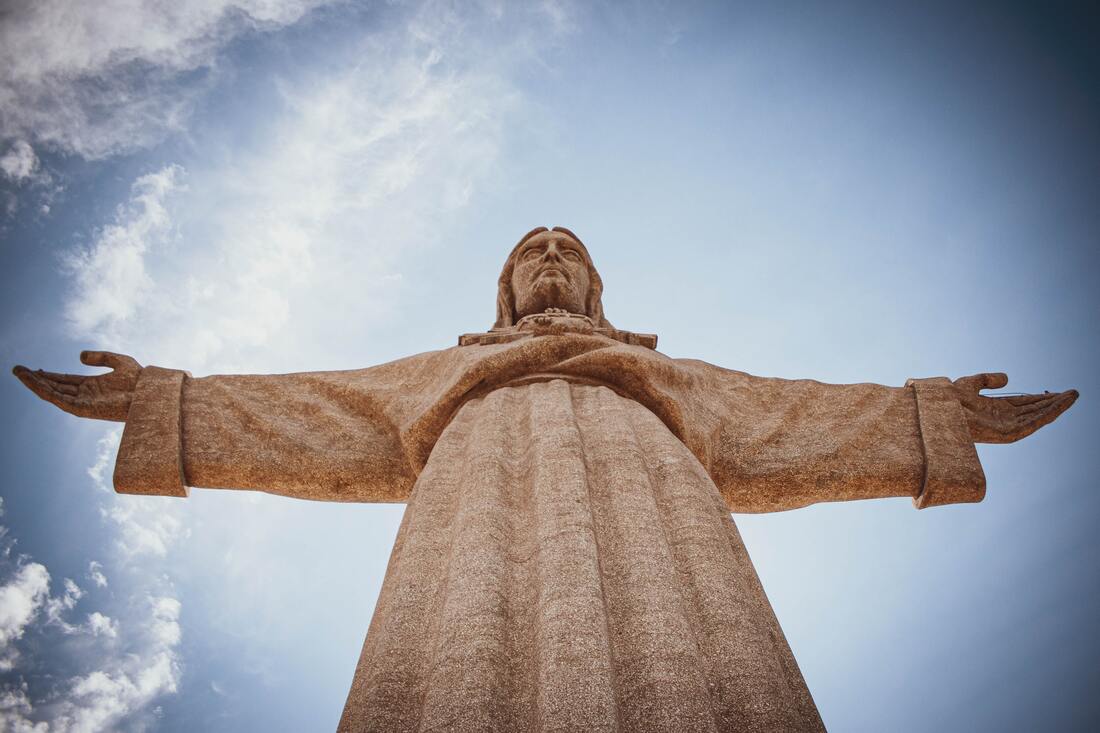
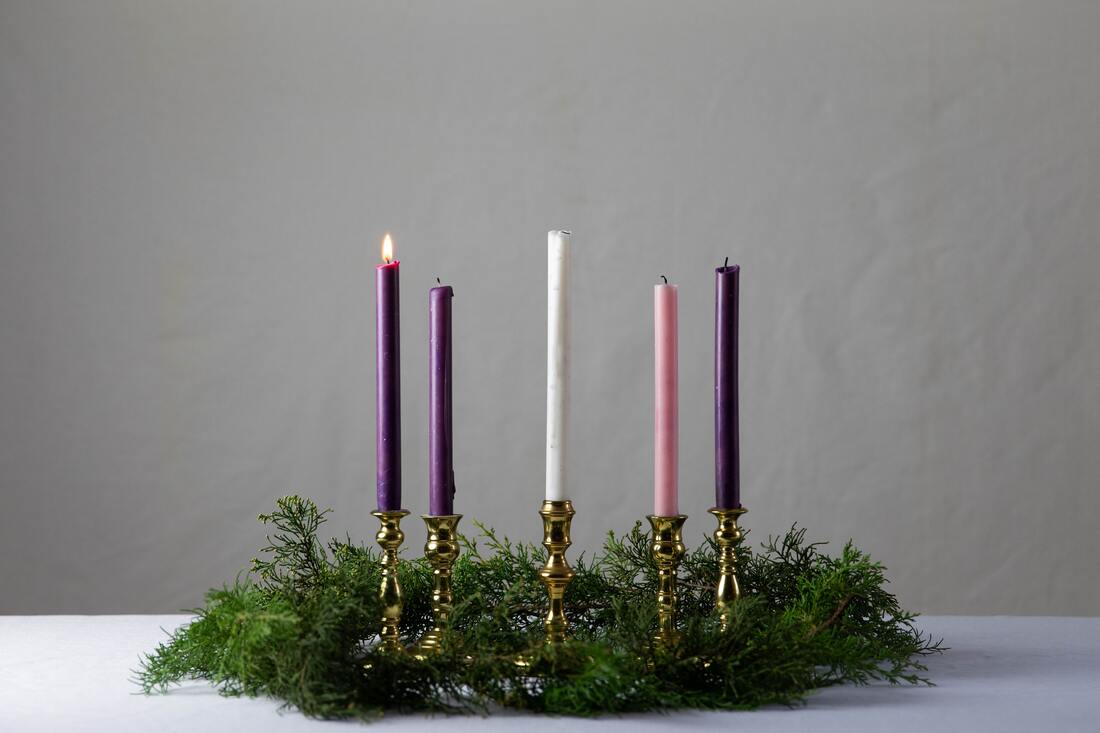
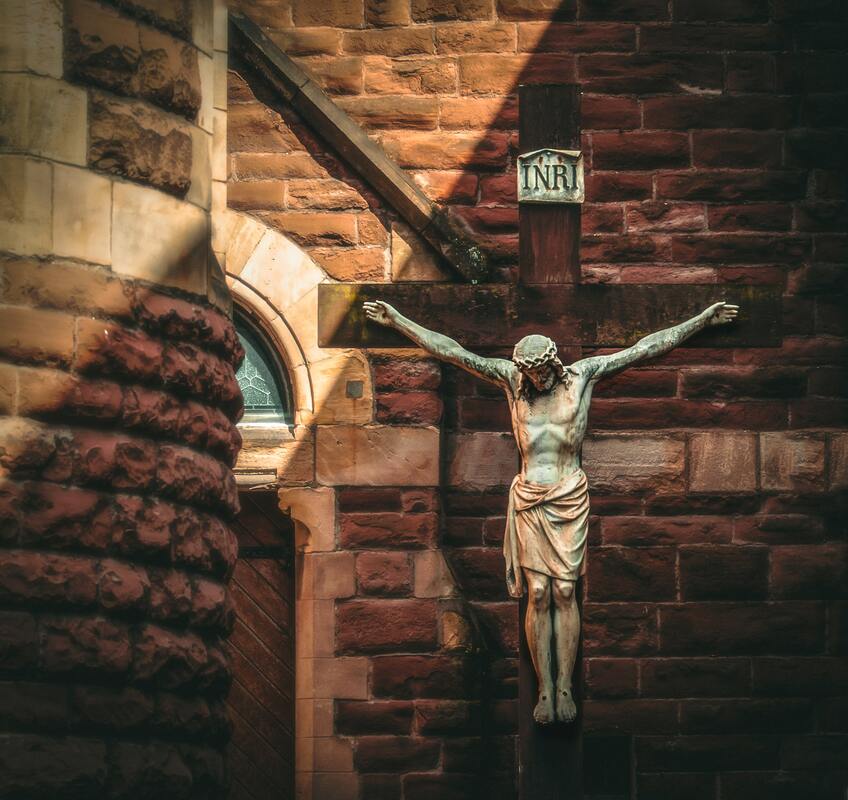


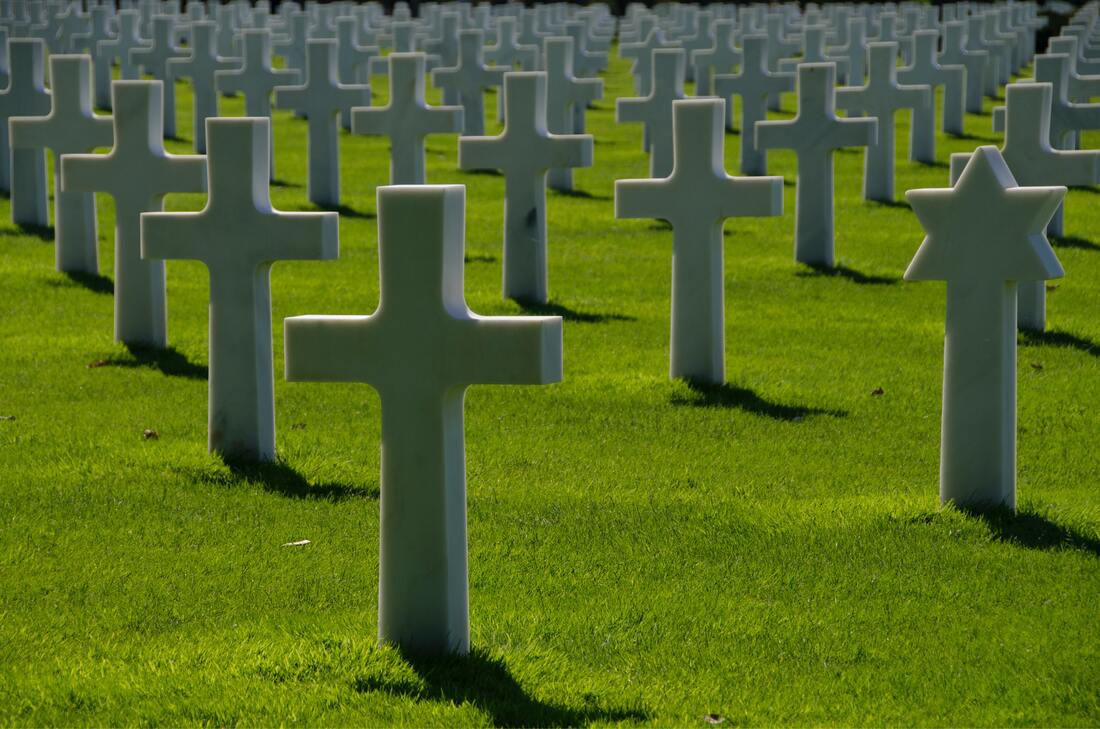
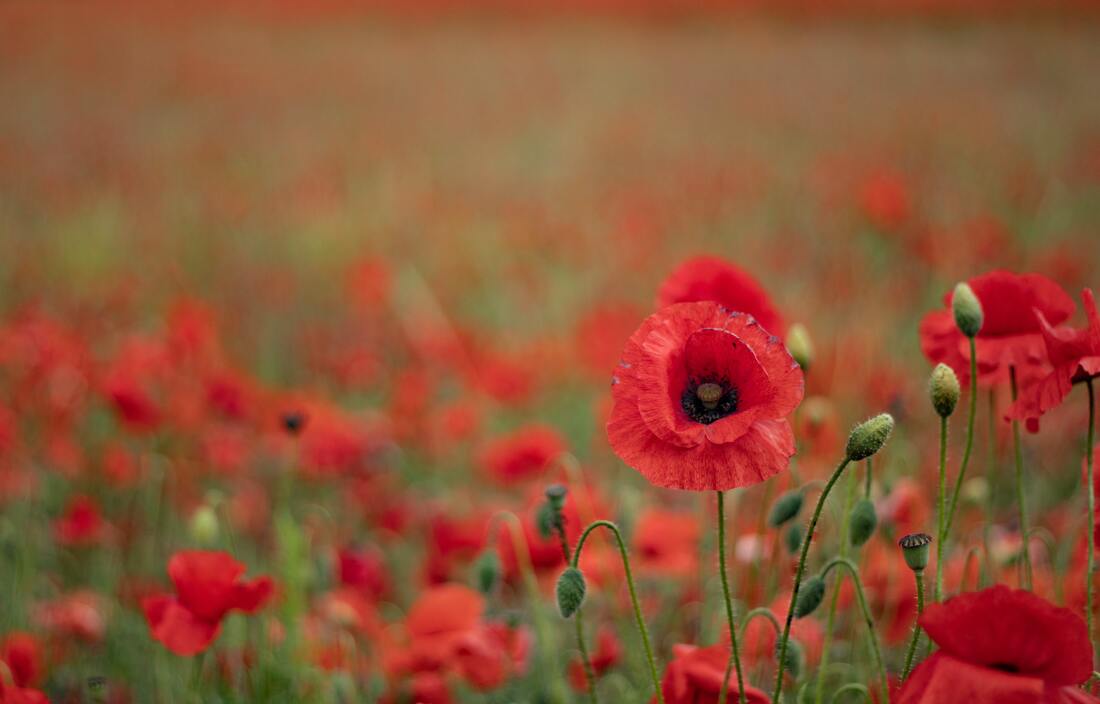
 RSS Feed
RSS Feed
